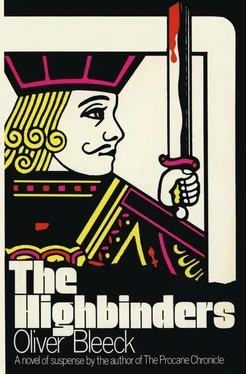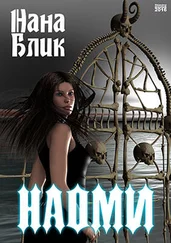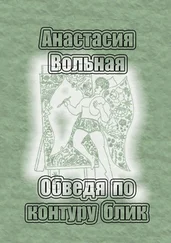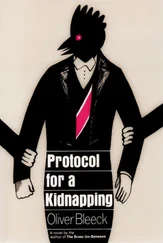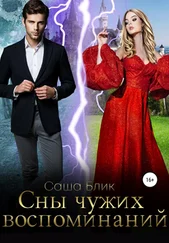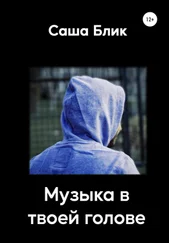“That partner of yours.”
“Him!”
“You’re still in touch?”
“Oh, yes, we’re still in touch. After all, he’s a fine Christian gentleman, he is. I went to prison and he did buggerall. But every Christmas he comes around to see me with a big basket of treats.”
“He faked those watches for you, didn’t he? Could he fake anything else?”
“Him? He could fake the crown jewels if he put his hand to it. He’s a bloody artist. What d’you have in mind?”
“Maybe a sword. Could he do an old sword?”
“No problem. He’d have to pray over it for a while, but he could do it. He takes his religion seriously. As I said, he’s a proper Christian. After all, when I got out of the nick, didn’t he set me up in this wonderful business I’m in? That’s true Christian charity, isn’t it?”
“You’re bitter, Tick-Tock.”
“You damned right I am.”
“How much for his name and address?”
The dead cunning in his eyes moved over to let the greed in. “How’d you find me?”
“Manny Kaplan.”
“Oh, him. What have you got on, St. Ives?”
“I don’t know.”
“Come off it. If you be needing an old Indian gentleman,” he said with a quaver, “I could play me old granddad now instead of me.”
“I don’t think so, Tick-Tock.”
“Just the name and address, right?”
“Right.”
“Fifty pounds.”
“Jesus.”
“My ex-partner will be glad to introduce you to him.” He pointed to the print of Christ on the wall. “He brought that around last Christmas. The cunts like it. Fifty pounds, please.”
I counted him out fifty pounds. “His name’s Billy Curnutt with a C and two t’s and he lives over his shop at fourteen Beauclerc just off Hammersmith Grove.”
“What kind of a shop?” I said.
“He’s a locksmith when he’s not down on his knees praying.”
I rose. “Okay, Tick-Tock. Thank you very much.”
“One more thing,” he said.
“What?”
“He might be in low spirits.”
“Why?”
“His wife left him this past Christmas Eve. I hear he’s not over it yet.”
“That’s too bad.”
“It’s also something else.”
“What?”
“It was the only good news I got last year.”
The Christmas tree tipped me off that something was wrong, which only demonstrates just how quick I am. If someone still has the Christmas tree up in the middle of May, fully decorated, although a bit brown, with the presents still lying beneath it, I tend to view it as unusual, even odd, although I had once kept mine up until the fifteenth of March.
I had had trouble finding a taxi and I hadn’t arrived at the shop of William Curnutt, locksmith, at 14 Beauclerc Street until a quarter to six. Curnutt’s shop had a big plate-glass window and behind the window was a drawn tan shade that had large white letters on it that spelled CLOSED. The locksmith’s shop was nearly in the center of the block of small shops. Above the shops was a layer of flats. In the center of the block was a flight of stairs that seemed to lead up to the flats.
I went up the stairs and down a hall until I came to 14-B. I knocked, but nobody answered. I tried the door, more out of curiosity than anything else, since it was a locksmith’s door, but it opened, so I went in.
The Christmas tree, a Scotch pine, I decided, was near a window. It was a big, fat tree, reaching nearly to the ceiling. Although the base of its trunk rested in a pail of water, there was a thick ring of brown needles on the mauve carpet and on the still unwrapped packages.
The furniture in the sitting room was neither good nor bad, just serviceable, sturdy stuff of no particular style that had been bought to last a long time and still had five or ten years to go. The lemon curtains were drawn, but two floor lamps were lit. On the walls were old mezzotints of Biblical scenes. David was about to do Goliath in with a slingshot. Adam and Eve were being driven out of the Garden of Eden by the stern forefinger of an old man with a long white beard who looked mad as hell. Some Roman soldiers rolled dice near a cross to which Christ was nailed. There were several others, all hardnosed, fundamentalist stuff, that seemed to hold out faint hope of there ever being a happy ending for the human race.
I went through the rest of the flat. There were two bedrooms, one of which must have been that of a child, a bath, a small dining room, and a kitchen. The beds were made, the bathroom looked scrubbed, and in the kitchen, which was almost fussily kept, things were laid out for tea.
The entire flat, except for the desiccated Christmas tree, which I took to be a sort of shrine, was almost too neat, as if it had just been cleaned by an overly conscientious daily, or as if its occupant couldn’t abide a speck of disorder. There were no overflowing ashtrays; in fact, there were no ashtrays at all. No empty glasses or teacups. No ring around the bath. No bits of shaved beard in the basin. No unwashed dishes in the sink.
A flight of stairs led down from the kitchen, presumably to the shop beneath. I went down them and came out into a workshop that seemed to be even more tidy than the flat above. There was a place for everything and everything was in its place. Tools of all description were carefully set into wall clamps and brackets. Rows of nails, bolts, and screws were meticulously sorted and stored in capped, labeled jars. A long, sturdy workbench with two big vises dominated one wall. Against another was a small industrial oven. There was also a gas-fed forge, some key-making machines, and several banks of blank keys.
In the center of the workshop was an old-fashioned blacksmith’s anvil that must have weighed half a ton. Propped up against it was a man with a broken neck. He wore tan shoes and gray slacks and a white shirt. There was no tie. He was about fifty, I thought, although it was hard to tell because his head hung down at such an acute angle that his gray eyes seemed to peer up at me almost upside-down.
Although it was my second dead body of the day, I wasn’t sure what I should do. So I stood there in the neat workshop and felt my palms grow slippery and the sweat gather in my armpits.
After a long moment, I made myself kneel down and touch his hand. For some reason then it was important that I touch him, as if it were the least that I could do for him, now that he was dead. The warmth had gone from his hand. It wasn’t cold, but the warmth had gone from it.
I patted his rear pocket. There was a wallet in it. I took it out, opened it, and looked at the photograph of the woman who was too carefully posed with the five- or six-year-old child. The woman looked as though she were forty-five or forty-six, almost too old to be the mother of the child, a girl, but I somehow knew that she was and that she had left with the child on Christmas Eve and that now neither she nor her daughter would ever open the presents that lay waiting for them underneath the aging Christmas tree upstairs.
There were some cards of identification in the wallet that said that it belonged to William Wordsworth Curnutt, locksmith, who was fifty-one, and a resident of 14-B Beauclerc Street, London, W.6. Other facts pertaining to the deceased included the information that he was a member of the Basic Baptist Breakfast Club, that he was male, five feet seven inches tall, weighed ten stone, had gray eyes, gray hair, no prominent scars, and that a gray suit was ready at the cleaners.
I put all the cards and scraps of paper and mementos that accumulate in a man’s wallet back into the compartments that they had come from, after rubbing each one on my pants knee — to confound Scotland Yard, I suppose. Then, because I’m nosy, I opened the wallet lengthwise to find out how much money Billy Curnutt carried. There were four one-pound notes and the torn half of a playing card. It was the one-eyed jack of spades. It was poker size, rather than bridge size, but I thought that any kind of playing card would be a strange thing for a Basic Baptist to be carrying around, until I turned it over and saw the white letters that were reversed into its deep red front. The large letters spelled out SHIELDS and then in smaller letters underneath, A Gambling Emporium.
Читать дальше
